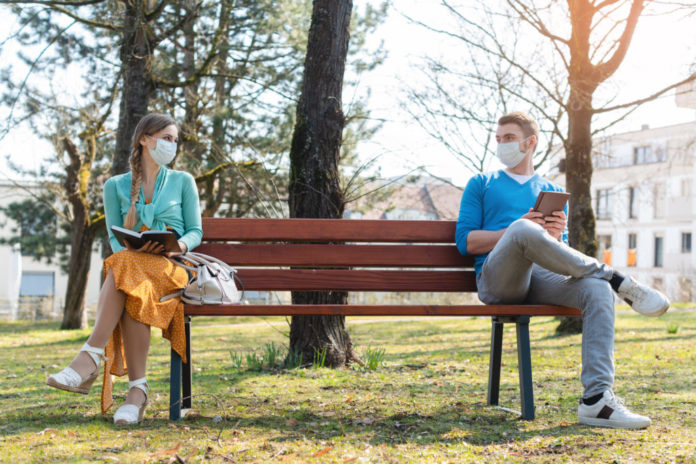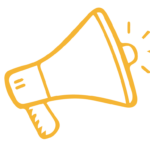Tired of zoom meetings? Same. Although this may be a new normal for many of us, and even a welcome change for some, there’s no doubt that it’s different. Rules and guidelines about social distancing are continuing to change, so we can continue to come up with new ways to feel engaged and connected to each other.
We went from connecting in our typical ways with friends, family and coworkers to staying away from everyone in our lives, besides those that we live with. Now we are gradually determining how to re-engage with each other in a way that feels safe and comfortable to us. This may be different for each of us, but it has undoubtedly changed for us all. When do we hug people again? When can we shake hands? Should we shake hands? How close can we sit to each other?
These are some of the questions we’re considering now as the way we connect has changed for the foreseeable future. How does this affect us as a social species? Humans are naturally social beings that thrive in connection. Our daily lives are defined by our relationships and interactions we have with other people, so it’s natural to be eager to re-engage with your community and also feel uncertain about how to do so. Engaging with others isn’t just fun, it’s part of our DNA. Social connection has been vital for our health and well-being for thousands of years, from when we relied on each other for survival.
“We are hardwired to connect with others, it’s what gives purpose and meaning to our lives, and without it there is suffering.” -Brené Brown
Be First
Now is the time to initiate connection in ways that you may not be used to. Reach out to the co-worker you’re thinking about, call your grandparent, or send your friend a note to check in. As busy adults with jobs and families, we often put off engaging with the people in our lives, or we wait for them to reach out. But these are days when you can make an extra effort to be the first one to engage and reach out.
Use Your Tools
All those tools you’ve been practicing, or considering, before social distancing? Yeah, now is the time to use them. It’s easy to practice yoga and meditation, journal, communicate better when things are going well. The hard times are when those healthy coping skills can be put to good use and make a difference in our well-being. It’s important to take care of ourselves first in order to have the capacity to connect with others.
Be Creative
If you’re like me, you’ve hit your limit for Zoom happy hours. Connecting with others over a screen isn’t perfect, but we can continue to find creative ways to engage and socialize. Send snail mail or care-package to a friend or family member. Find groups that focus on a common interest, like a book club or learning a skill. If you’re engaging with others over a common interest, it’s more likely to be a fulfilling, authentic connection.
Talk About It
There’s no doubt that this feels weird. Sitting far apart in public, wearing masks and cleaning every surface can bring up a lot of uncomfortable feelings. Talk about it with each other and how you’re handling it. It’s healthy to process emotions and discuss them openly with each other. After all, this is something that is affecting every single one of us. It’s a shared experience.
Seeking therapy can be very helpful during this time as well, and many therapists continue to offer teletherapy. If you feel like you are struggling, please reach out to me or consider the following resources:
- For those who are worried about quarantining during #COVID19 in a home where they do not feel safe, live help is available from the National Domestic Violence Hotline 24/7/365 at @ndvh by chat or by calling their hotline at 1-800-799-7233. https://www.thehotline.org
- Substance Abuse and Mental Health Services Administration (SAMHSA) website. Substance Abuse and Mental Health Services Administration’s (SAMHSA’s) Disaster Distress Hotline may only be available in the United States and parts of Canada: 1-800-985-5990 or text TalkWithUs to 66746. People with deafness or hearing loss can use their preferred relay service to call 1-800-985-5990.
- America Foundation for Suicide Prevention Crisis Hotline: Call 800-273-8255 or text TALK to 741741 Taking Care of Your Mental Health in the Face of Uncertainty
Regardless of how your life looks moving forward and how much you continue to stay home, you do not have to be isolated and disconnected. And it’s perfectly normal to feel uncertain or uncomfortable with how to engage again with others. Acknowledge the importance of social connection and ways to create it in your new world. It’s important to maintain relationships you’ve built over the years. Technology is making this possible, but it’s important to find ways to mitigate the downsides through connecting in a more genuine, authentic way.
Sign up for our Weekly Wellness email here.











